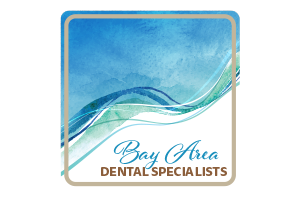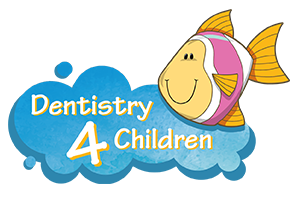Welcome to Our Bay Area Dental Specialists in Friendswood, TX
Welcome to Bay Area Dental Specialists in Friendswood, TX
The Impact of Stress on Your Teeth
If you are among the half of American adults who frequently feel stressed, you likely understand impacts like sleep difficulties and lethargy. However, knowing the correlation between stress and dental health is essential to prioritize holistic wellness.
Here, we will discuss:
- How stress causes bruxism
- The correlation between stress and TMJ
- The impacts of bruxism and TMJ
- Other dental health issues that stress may cause
Read on to learn how to contend with the link between stress and teeth to get your oral health back on track.
Stress and Bruxism: The Correlation
Bruxism is the medical term for teeth-grinding. People usually grind their teeth because of:
- Tension caused by anxiety and frustration
- Trouble sleeping
- Sleep disorders
- Certain medications they take
- Consuming substances
Anxiety and frustration usually stem from stress. Sleeping poorly causes this stress since Gallup notes that 57% of Americans say they would feel calmer if they slept enough.
A 2020 study published in the National Library of Medicine systemically reviewed six selected articles about the link between stress and bruxism. These studies assessed the stress scale of subjects and their instances of bruxism.
The study found a significant association between bruxism and stress.This mainly included those with stress from emotional disorders and work-related problems.
Why Are They Correlated?
It is important to know that researchers found a correlation between stress and bruxism, but you are likely also wondering why this is the case.
There are
several reasons, including:
- Jaw muscles clenching due to stress-induced fight-or-flight responses
- Poor sleep quality since bruxism is most common during light sleep
- Too much screen time leads to mental health issues
Knowing exactly how stress affects teeth can help you confront the root of your problem in the most goal-oriented way possible.
The Impacts of Bruxism
Bruxism can cause your teeth to:
- Crack
- Chip
- Become loose
- Flatten out because of grinding down the bone
- Lose layers of enamel
Beyond sleep problems, it can also correlate with:
- Jaw pain
- Pain when eating
- Headaches
Bruxism can contribute to temporomandibular joint disorders, abbreviated as TMJ. This is because of the tension from clenching your jaw:
- Overexerts your jaw muscles
- This leads to inflammation and irritation
- Places repetitive pressure on TMJ muscles
- Can misalign your jaw
However, those who do not have bruxism are also at risk for TMJ. A reputable Friendswood dentist can help you determine whether your jaw and head pain stems from TMJ.
Stress and TMJ: A Deeper Look
According to 2024 academic research, stress has a significant impact on TMJ. Bruxism and TMJ are heavily linked. However, this fact is actual even if you do not have bruxism.
A cross-sectional study examined people's stress levels and their bone density and thickness in the jaw. CT scans ultimately led the researchers to the conclusion that there was an inverse correlation between bone mineral density and stress.
They concluded that psychological stress has a link with condyle structure. So, TMJ and stress are linked, according to these clinicians.
The Reasons for Correlation
Stress can trigger TMJ for several reasons, including:
- Regularly-clenching jaw muscles
- Overactive nerves in the jaw
- A lack of good sleep
- Compounded stress from the impacts of chronic TMJ pain
Most of these tie in with bruxism since it is a risk factor for TMJ. However, if you have any of these problems, getting looked at for TMJ is likely a good idea.
The Impacts of TMJ
TMJ can impact your quality of life in many ways:
- Jaw pain and soreness
- A lower range of motion in the jaw
- Trouble opening and closing your mouth
- Headaches and facial pain
- Ear pain and ringing in the ears
- A higher likelihood of sleep apnea
Getting treatment ASAP can help nip these problems in the bud. You do not want to take dental treatment off too long because TMJ only gets more painful.
Excessive pressure will also wear down the jaw over a longer period. TMJ-related physical impacts will get worse and worse without professional help. It will be more painful and expensive for you in the long run, so prioritize getting TMJ treatments ASAP.
Getting Your Health Back on Track
Reducing stress at home can help you with TMJ pain management.After all, stress is frequently the root cause of bruxism and TMJ. Eliminating the source of pain will help treat the problem.
Make sure to:
- Exercise
- Do deep breathing exercises
- Sleep enough
- Maintain a healthy diet
- Engage with hobbies and interests
- Limit screen time
- Stay Social
However, at-home stress reduction will not help you undo the pre-existing problems you have with bruxism and TMJ. Texas dentists can help you decrease your pain levels with bruxism treatment options.
Our Accreditations and Credentials
Our doctors- Dr. Budman, Dr. Bailey, Dr. Craig, and Dr. Browning- have a wide range of credentials that can help you treat this pain.
Dr. Budman attended the University of Pittsburgh School of Dental Medicine in 2002 and completed a one-year Advanced Educationin General Dentistry at Sheppard AFB.
Dr. Bailey is involved with several professional, well-known groups, such as the Greater Houston Dental Society, Texas Dental Association, American Dental Association, American Association of Orthodontists, and the College of Diplomates of the American Board of Orthodontics.
Dr. Craig, our surgeon, earned a doctorate at Temple University School of Dentistry and extensive experience as an army surgeon with Operation Enduring Freedom in Afghanistan. This experience earned him a bronze medal and a Meritorious Service Medal!
Finally, Dr. Browning is a member of the American Dental Association and Texas Dental Association. Another surgeon received a Doctorate in Dental Surgery at Houston's University of Texas Health Science Center.
Treat Bruxism and TMJ With Expert Help
Understanding the relationship between stress, bruxism, and TMJ is an essential first step in treating painful oral health issues. Now that you know how stress affects teeth, it is time to invest in TMJ pain management and bruxism treatment options.
At Bay Area Dental Specialists, our team is committed to transforming the dental health of Friendswood, TX. We offer many services, including dental advice, TMJ treatment, and dental check-ups and cleanings.
Learn more about our
general dentistry methods and schedule an appointment ASAP!
For Kids
For Adults
All Rights Reserved | Bay Area Dental Specialists
Website designed & maintained by Xpress INC


